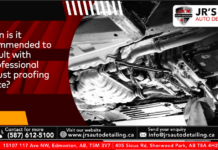Last Updated on July 13, 2024 by Asfa Rasheed
Instead of turning up the radio and hoping the noise will go away, pay attention to these noises when your engine makes them. Things like hissing and knocking should never go ignored. And, as a driver who is mindful of their vehicle as well as the road, listening to your vehicle’s cues will help you feel satisfied that you are in control, all the while enjoying the confidence that you are saving money along the way.
There are some noises that will, in fact, go away. When you’re driving over certain roads there might be rumble strips or potholes (big and small) that cause various vibration patterns. Driving over a bridge will sound different than driving on a regular highway. Once you become used to the regular sounds your car makes over various roadways you will feel more confident in knowing when a “bad” noise crops up.
Table of Contents
Grinding.
If you hear the engine grinding when you start up your vehicle, it’s time to get the starter motor checked. On occasion it does need replacing. If, however, you hear grinding when you are shifting gears, it could be a strong signal that you are having transmission issues. If your car is manual transmission, that noise could indicate that the entire transmission needs to be replaced.
Snap, Pop or Click.
If you are driving a front-wheel or all-wheel drive vehicle and you hear a snapping, clicking or popping sound when you turn it could indicate that the CV joints need to be replaced on your front axle. There are two, and both might need your attention. It’s important not to ignore this sound because the axle could break at any time – whether you’re stopped or driving down the highway at 60 mph.
Chirping or Squealing.
If you have an older car and you hear a squeal when you start your vehicle or accelerate, it could be one of many problems. You might have a worn or loose accessory belt which is responsible for various engine parts such as the power steering pump, air conditioner compressor and alternator.
If you drive a newer car, the chirp or squeal could indicate that you need to replace the serpentine belt. This belt is responsible for a number of different accessories all at once. Taking care of the problem right away will insure that you won’t have to deal with an expensive repair down the road.
Sputtering, Rattling or Rumbling.
If you hear rattling noises coming from your engine keep in mind that it might not be the engine at all. It could actually be your exhaust system. When this system develops a hole, you can hear sputters and loud rumbles. The easiest solution is usually to install a new muffler. Though you or your mechanic might want to tighten and reattach loose pipes or even replace corrode pipe sections.
Whirring.
If your engine makes a whirring noise when you are accelerating it could indicate a faulty torque converter, worn universal joints or simply parts that need lubrication. The engine is full of rotating belts that crack and stretch over time. These might also be the cause of the whirring noise. Checking on this issue with your trusted mechanic will help save you money – and even an inconvenient breakdown – in the future.
Hissing.
When you hear a hissing sound after you turn on the car, it might be a sign that coolant or oil is leaking onto one of the warm engine parts or the exhaust manifold. Hissing noises coming from under the hood likely means that there is a leak in the vacuum or cooling system. High-pitched hissing means there is a leak somewhere in a hose or fitting.
Signs of Engine Failure
It’s bad enough to hear noises that you know are abnormal and likely indicate something is wrong with your vehicle. It’s another to experience these engine failure warning signs. Staying up to date with the car maintenance schedule and keeping all levels where they should be is a great way to avoid complete engine failure.
Loss of Power.
If your car is running on borrowed time (many miles and many years under its hood) it won’t come as a huge surprise if you lose power suddenly. If however, it’s relatively new a loss of power is a big red flag.
Lots of Exhaust Smoke.
You can determine the issue by the color of the smoke. Blue tinted smoke indicates a possible oil leak. White smoke indicates a coolant link and black means that the engine is burning off too much gasoline.
Vibrations.
These aren’t the good kind. If you’re able to feel vibrations radiating off your engine, check the oil a.s.a.p. The vibrating could indicate metal-on-metal contact.
Not every noise is scary and means the end of your vehicle’s life, but when you’re proactive and listen to the clues, you could stave off costly repairs. Being proactive about where you get your car insurance from also puts you in better control over your expenses. Finding cheap car insurance is easy when you comparison shop and find the best rates.
Apart from this, if you are interested to know about What Is Stump Grinding All About? then visit our Automobile category.























